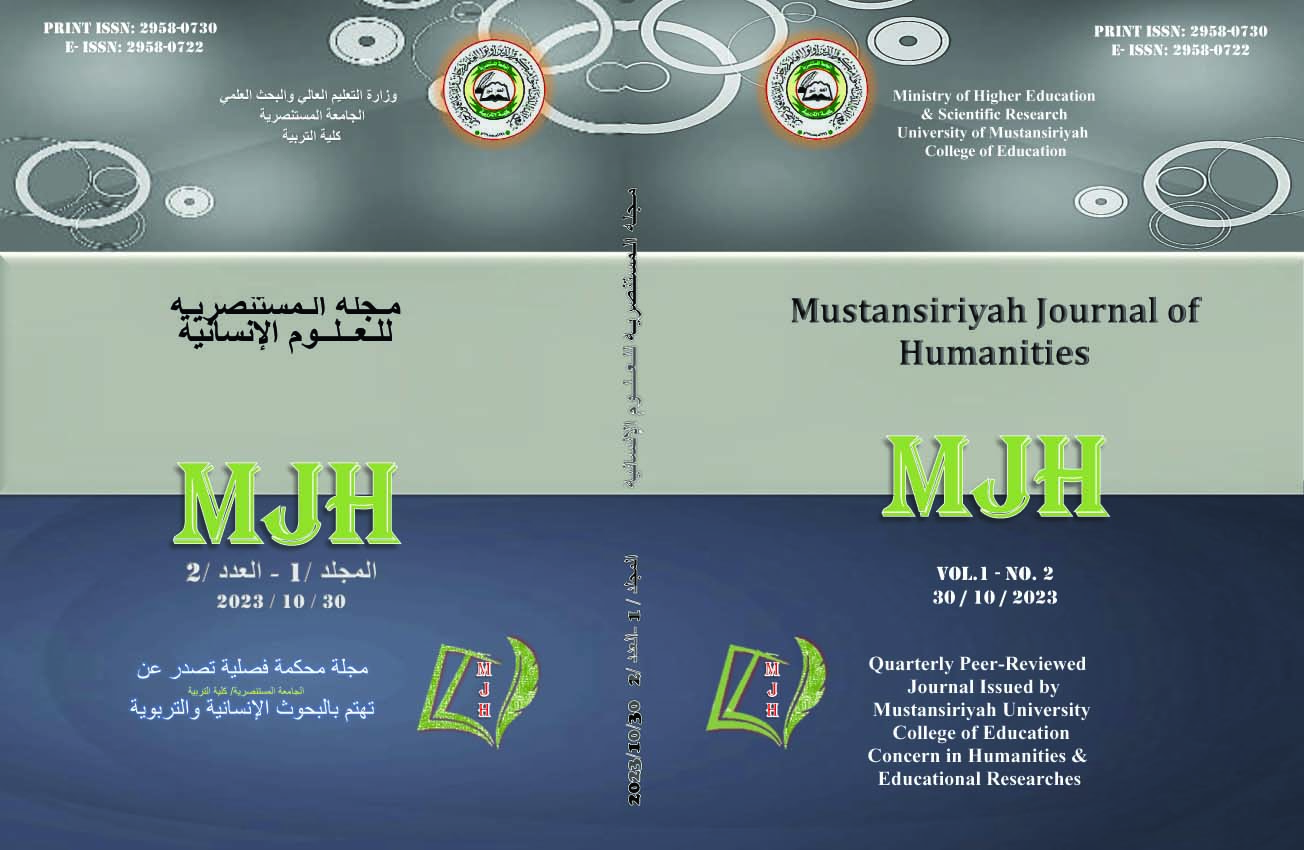Evaluating The Content Of The Social Books For The Primary Stage According Of Knowledge Economy Standards
DOI:
https://doi.org/10.47831/mjh.v1i2.231Keywords:
calendar, content, books, social, standards, economy, knowledge.Abstract
The current research is an attempt to evaluating the content of the social books for the primary stage according of knowledge economy standards . The research sample included the content of social books for the academic year (2020-2021).
To achieve the goal of the research, the researcher relied on the literature, research and previous studies in determining the criteria of the knowledge economy in its initial form. Then it was presented to a group of experts and arbitrators in geographic teaching methods , history , curricula, measurement and evaluation, to determine its final version, which included (7)main criteria and (46) sup-indicators.
The researcher used the descriptive analytical methods it is suitable with the nature of the study, and he used the books of the primary stage, which are three books for the fourth , fifth , and sixth grades, which represents the research community, the content of those books was analyzed in the light of the standards of knowledge economy .The validity of the tool was confirmed by presenting it to a group of experts, and the stability of the tool was calculated by re-analysis with a time difference between the first second analysis, and by agreement between the researcher and external. The researcher relied on frequencies and percentages in obtaining the final results, which are as follows:
- The fourth grade book of primary school obtained(402)repetitions distributed over its content, The percentage of each of the knowledge economy ware as follows, it was a field of knowledge (23,63), and activities and calendar (18,16), and readiness for learning and self-development (16,91), and life skills (16,17),and thinking development (12,94), and communication and communication(6,72), and economic filed (5,47).
- The fifth grade book of primary school obtained(510)repetitions distributed over its content, The percentage of each of the knowledge economy ware as follows, it was a field of knowledge (21,96), and readiness for learning and self- development (17,25) , and activities and calendar (16,47), and life skills (15,49),and thinking development (13,73), and communication and communication(7,84), and economic filed (7,26).
- The sixth grade book of primary school obtained(497)repetitions distributed over its content, The percentage of each of the knowledge economy ware as follows, it was a field of knowledge (20,72), and readiness for learning and self- development(16,90), and activities and calendar (15,90), , and life skills (15,29),and thinking development (12,48), and economic filed (11,27), and communication and communication(7,44).
- When comparing the results with the expected spoken ratios ,the social sciences books achieved good percentages in the criteria (cognitive, readiness for learning and self- development, activities and evaluation, and life skills) and did not achieve the required percentages in my criteria (development of thinking ,communication and communication) as for the (economic field) it achieved the required percentages for the books of the (fourth and sixth) grade of primary school ,but did not achieve the percentage specified for the book of the (fifth) grade of primary school. In the light of the above stated results, suitable conclusions, recommendations, and suggestions for further studies are put forward.
Downloads
Published
Versions
- 2023-12-03 (3)
- 2023-11-15 (2)
- 2023-11-08 (1)





